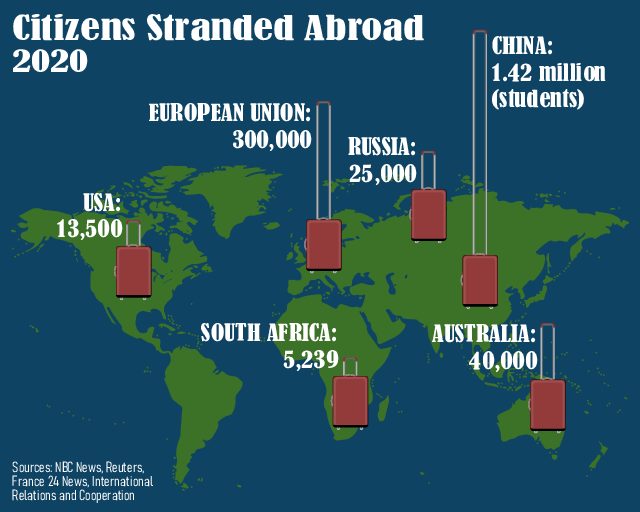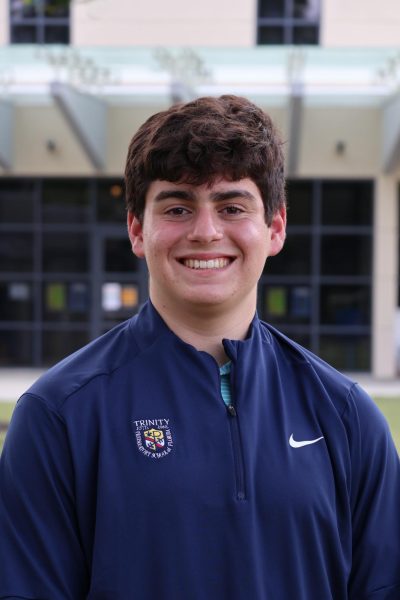When everyone was adjusting their lives due to the COVID-19 pandemic, few knew that there were over 13,500 Americans, 300,000 Europeans, and millions of other people stuck in various countries. Trinity’s world language teacher Inmaculada Lozano-Diaz was one of them.
After being gone for a total of 18 months and two days, Lozano-Diaz returned to her Spanish 1B students and the rest of the Trinity community.
Lozano-Diaz was born and raised in Madrid, Spain, living with her brother, father, mother, and pet dog named Zara.
“I went to a private school in Madrid,” Lozano-Diaz said. “I did a lot of extracurricular activities, like sports and playing piano. I roller skated as well, [along with] riding horses with my brother.”
Lozano-Diaz enjoys spending time with her family over the weekends. When she turned 26, she already received both her bachelor’s degree in psychology and master’s degree in child psychology in Spain. Lozano-Diaz then decided to travel to Florida and attend UCF for a master’s in Spanish linguistics.
At UCF, she met both former world language teacher Nicole Garcia and current world language teacher Maria Weaver. Shortly thereafter, Lozano-Diaz was convinced by Garcia to teach at Trinity. At the start of school in August 2018, Lozano-Diaz became the official Spanish 1B teacher.
Less than two years later, Lozano-Diaz went to visit her family in Spain for spring break on March 13, 2020. Unfortunately, she traveled to Spain right at the start of COVID-19, leaving all of her property and valuables behind. Lozano-Diaz said she was terrified.
“I was stressed,” Lozano-Diaz said. “Everything was here [in Florida], my house, my car, everything. I just went with a backpack and my laptop. That’s it.”
For the first four months of quarantine in Madrid, the only places people in Spain were allowed to go to were the supermarkets, pharmacies and hospitals. Out on the streets were policemen watching the Spanish citizens and making sure they only left their homes to go purchase something or to go work. The police would have to check their receipts from the stores they went to in order to excuse them from leaving their homes.
Lozano-Diaz’s mother is a doctor in Spain, so she was the only family member working outside their home. While her mother was away, Lozano-Diaz found many ways to pass the time.
“We played a lot of video games, watched movies, and did a lot of exercising,” Lozano-Diaz said.
During the time Lozano-Diaz wasn’t engaging in those activities, she was helping the interim teacher who temporarily took her place. This teacher was coincidentally the same person she met at UCF, Weaver. Due to their friendship, it was easy for Lozano-Diaz and Weaver to work together in order to benefit the 1B students’ Spanish education.
Along with assisting Weaver, Lozano-Diaz tutored kids of all Spanish levels.
Lozano-Diaz frequently met with World Language Department Chair Vannessa Spallone in order to arrange her transition back to Trinity.
“It was always understood that we wanted Miss Lozano-Diaz to come back, and so we stayed in touch to see what the decisions from the Europeans were in regards to traveling back to the US,” Spallone said.
Spallone, along with many other faculty and staff members, said that they were worried for Lozano-Diaz and hoped for a quick, safe return.
“It was almost traumatic at the beginning because we really thought that she was coming back, but we found out maybe two weeks before school started that she was not going to be able to return,” Spallone said.
During faculty week, a week before school, the World Language administration had to find a new teacher to replace her for a year, and it had to be an interim teacher who was willing to leave at the end of the year.
Lozano-Diaz didn’t only stay in touch with Spallone, but also with all of the other world language teachers.
“[Lozano-Diaz] stayed in touch through the world language group chat,” Spallone said. “She was in touch with all of the world language teachers through the chat, just to say “hello,” or to organize tutoring sessions for Spanish students with other colleagues.”
As Lozano-Diaz waited to come back to Trinity, she constantly was watching the news and waiting for a sign of hope.
Finally, in August, after 18 months of constant waiting, Lozano-Diaz went on a plane to travel to Mexico to visit an old friend from Spain, and from there she flew to Miami.
Lozano-Diaz has learned a lot of key lessons away from her experiences, but she said that the most important one is patience.
“Just take one day at a time, there are things more important than material things, which is health and quality time, so quality time [is] more important,” Lozano-Diaz said.















